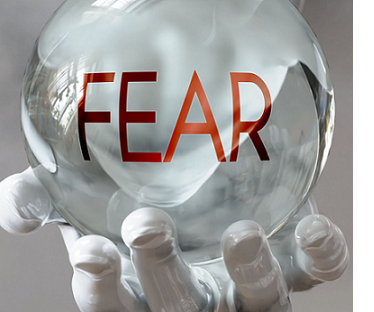The Psychology of Self-Defense: Understanding Fear and Overcoming It
 Self-defense is a topic that is frequently discussed in society. People often discuss techniques for defending oneself from an attacker, but less frequently discussed is the psychological aspect of self-defense. Understanding the psychology of self-defense is essential to overcoming fear and responding appropriately in a dangerous situation.
Self-defense is a topic that is frequently discussed in society. People often discuss techniques for defending oneself from an attacker, but less frequently discussed is the psychological aspect of self-defense. Understanding the psychology of self-defense is essential to overcoming fear and responding appropriately in a dangerous situation.
Fear is a natural and normal human emotion. It is an adaptive response that helps us identify and respond to potential threats. However, fear can also be overwhelming and prevent us from acting effectively in dangerous situations. When we are afraid, our bodies release adrenaline, which increases our heart rate and prepares us for a fight or flight response. This can be helpful in some situations, but it can also lead to panic and confusion.
Overcoming fear is an essential aspect of self-defense. One of the most important ways to overcome fear is to prepare yourself mentally and physically for dangerous situations. This can include taking self-defense classes, practicing martial arts, or simply being aware of your surroundings and potential threats. When you are physically prepared for danger, you are more likely to respond effectively and overcome your fear.
Another important aspect of overcoming fear is learning to recognize the signs of fear and anxiety in yourself. This can include physical symptoms such as increased heart rate and sweating, as well as emotional symptoms such as feelings of panic or helplessness. Once you recognize these symptoms, you can use techniques such as deep breathing or visualization to calm yourself and stay focused.
In addition to understanding fear, it is also essential to understand the psychology of attackers. Many attackers are motivated by a desire for power or control over their victims. By understanding this, you can develop strategies for responding to attackers and taking control of the situation.
One effective strategy for responding to an attacker is to use verbal assertiveness. This involves using a strong, confident tone of voice and clear, direct language to assert your boundaries and assert your right to defend yourself. This can be especially effective if the attacker is looking for an easy target and is not expecting resistance.
Another important aspect of self-defense is understanding the importance of boundaries. Setting clear boundaries and communicating them effectively can help prevent dangerous situations from occurring in the first place. For example, if you are in a social situation and someone is making you feel uncomfortable, it is important to assert your boundaries and communicate your discomfort to the person. This can help prevent the situation from escalating and potentially becoming dangerous.
In conclusion, understanding the psychology of self-defense is essential to overcoming fear and responding effectively in dangerous situations. By preparing yourself mentally and physically, recognizing the signs of fear and anxiety, understanding the psychology of attackers, using verbal assertiveness, and setting clear boundaries, you can stay safe and confident in any situation. Remember, self-defense is not just about physical techniques; it is also about understanding yourself and others and responding appropriately in potentially dangerous situations.
See cost of Self-defense devices.



























